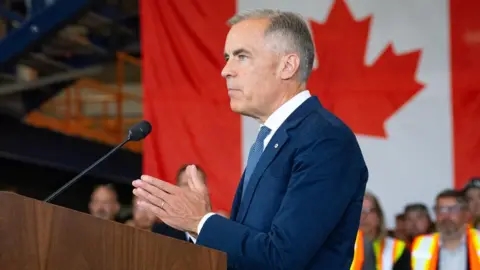Canadian leaders have made it clear they will not agree to unfavorable trade terms with the U.S., even as Washington prepares to impose steep new tariffs if negotiations fail by August 1.
“We won’t sign any agreement just for the sake of having one,” the country’s leader stated during a press briefing in Ontario. “Our priority is securing terms that benefit Canada.”
If no deal is reached, American businesses importing Canadian goods could face a 35% tax. The two nations, among each other’s top trading partners, have been locked in tense discussions since the U.S. administration reintroduced aggressive trade policies earlier this year.
The U.S. has defended the tariffs as a way to strengthen domestic industries and safeguard jobs. However, critics argue the measures could drive up costs for American consumers and disrupt global markets.
Already, certain Canadian products face a 25% duty, with steel and aluminum imports hit by an even steeper 50% levy. In response, Canada has signaled it may take steps to shield key sectors, including lumber and aluminum, from the economic fallout.
“We’ll likely see more support needed for the hardest-hit industries in the coming months,” the leader noted during a meeting with provincial officials.
Canada sends roughly 75% of its exports to the U.S., including metals, lumber, oil, automobiles, machinery, and pharmaceuticals. Trade data shows the U.S. exported nearly $350 billion in goods to Canada last year while importing over $412 billion worth of Canadian products.
The U.S. administration has broadly justified its tariff strategy by claiming foreign trade partners have taken advantage of American markets. Additional reasons cited include efforts to curb illegal drug trafficking, though data shows only a small fraction of such seizures occur at the Canadian border.
While the U.S. has reached trade agreements with several nations in recent months, many of these deals maintain elevated tariff rates. For example, a recent pact with the Philippines set duties at 19%, slightly higher than initially proposed but lower than earlier threats of 20%.
As the deadline approaches, Canada remains resolute in its stance, prioritizing its economic interests over a rushed compromise.








